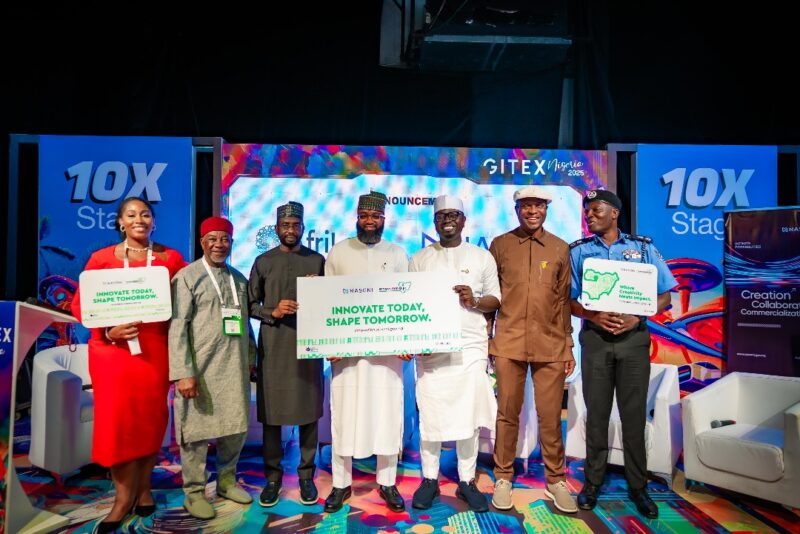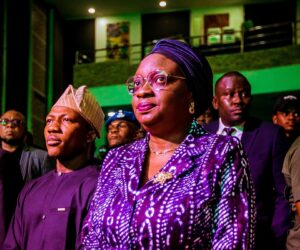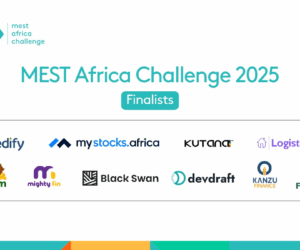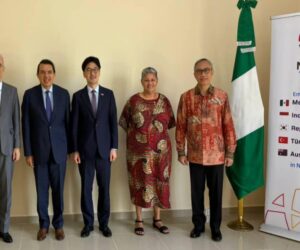The National Agency for Science and Engineering Infrastructure (NASENI) has launched InnovateNaija, a ₦250 million nationwide innovation challenge aimed at identifying and supporting young Nigerian innovators.
The initiative, unveiled at the Gulf Information Technology Exhibition (GITEX) in Lagos, will provide funding, mentorship and exposure to innovators across all 36 states and the FCT, with the overall winner set to receive ₦100 million to scale their solution.
The Innovate Naija Challenge is designed to spark nationwide excitement and online engagement by identifying, empowering, and supporting innovative youths across Nigeria. Through creative video submissions, participants will showcase their inventions or ideas for a chance to receive funding, with 37 winners selected from across the country.
SPONSOR AD
The challenge aims to ignite creativity and generate vibrant energy within Nigeria’s innovation ecosystem, using social media to create a dynamic, high-energy movement that celebrates local talent and ingenuity.
“We are not just unveiling a competition, we are igniting a movement,” NASENI Executive Vice Chairman and Chief Executive Officer, Khalil Suleiman Halilu said, and that it is a “movement to find thousands of stories like that of the young man from Kano who built a low-cost water purification system from everyday materials. A movement that empowers, funds, and accelerates Nigerian ingenuity,” he adds.
For decades, Nigerian innovators have struggled against the odds of inadequate funding, lack of mentorship, poor infrastructure, and limited platforms to showcase their innovations. Many promising ideas never moved beyond sketches or prototypes. Halilu, himself one of the country’s youngest appointees to head a federal agency, sees InnovateNaija as the bold step needed to break that cycle.
Backed by the Presidency and supported by AfriLabs, Africa’s largest network of innovation hubs, the challenge is set to become Nigeria’s largest showcase of homegrown products in science, engineering, and manufacturing. The structure of the competition is as ambitious as its vision.
In the first phase, 36 innovators, one from each state and the FCT, will be selected through a blend of public voting and expert review. Each will receive ₦2.5 million to advance their ideas. The second phase will culminate in the NASENI Invention Fest in Abuja in February 2026, where the top 15 innovators will pitch to a jury of experts and stakeholders.
The ultimate winner will walk away with ₦100 million to scale their solution. By design, InnovateNaija decentralizes opportunity, ensuring that no state is left behind.
Nigeria today faces immense economic headwinds such as fluctuating oil revenues, currency volatility, unemployment, and a fragile industrial base. For Halilu, these challenges are not deterrents but springboards.
Speaking during a panel session at GITEX on The Neo-Geo Politics of Tech, he argued that Nigeria holds unique competitive advantages such as its youthful population, a vast domestic market, cheap labour, and abundant raw materials.
“With these factors combined, Nigeria is the next attraction for global investment,” he said. “We must localize what is practical, diversify supplies, and push government institutions to enforce standards and provide incentives, because incentives drive industrialization.”
Halilu believes innovation is no longer optional; it is survival strategy in a world where geopolitical conflicts, supply chain disruptions, and tariff wars threaten smaller economies the most. For him, InnovateNaija is about more than prizes; it is about building an ecosystem that sustains itself.
Parallel to the competition is the unveiling of the NASENI Innovation Hub, a facility designed to bridge the gap between raw ideas and market-ready products. Here, innovators will receive mentorship, technical capacity-building, and access to infrastructure that most could never afford on their own. The hub, Halilu explained, is about transforming innovators into entrepreneurs.
“Our Innovation Hub is designed to strengthen research and development with a clear focus on advancing Nigeria’s technological capabilities and promoting homegrown solutions, not just for Nigeria, but for all of Africa,” he said. To drive home the purpose of
InnovateNaija, Halilu drew from real-life examples. He told the GITEX audience about a young Kano-based inventor who built a prototype water purification system with no laboratory, no investors, just determination.
“That young man represents the spirit of Nigerian innovation: creativity born from challenge, solutions driven by necessity, and a resilience that inspires the world,” Halilu said. It is precisely such hidden gems that InnovateNaija seeks to unearth from Nigeria’s 230 million-strong population; the largest youth demographic in Africa.
While rooted in Nigeria, InnovateNaija’s ambition is continental. Halilu insists innovation should not stop at borders. “When a Nigerian innovator builds a solar solution, it should be scaled in Ghana, Kenya, and beyond. When a Kenyan builds a health-tech breakthrough, it should find partners in Lagos and Abuja,” he said.
This pan-African orientation explains why NASENI partnered with AfriLabs, which connects over 400 hubs across Africa. The goal is to ensure that Nigerian-made solutions find pathways across the continent, while Nigeria also benefits from innovations developed elsewhere.
For many investors, the Nigerian market carries risks of policy inconsistency, infrastructure gaps, and foreign exchange volatility. Halilu acknowledges these concerns but argues that government must take the lead in de-risking innovation. “There is a growing global interest in Nigeria,” he said at GITEX.
“It is government’s role to de-risk, and it is the entrepreneur’s responsibility to build. With this background, we should be investing in making, localizing, and adopting different strategies.” For Halilu, this was no coincidence. “With our population, we can remain independent of imports. That’s why everyone is now seeing NASENI entering into new partnerships with Japan, Brazil, and the West,” he noted.
“To our young innovators, this is your moment. To our partners and investors, this is your chance to believe in Nigeria. And to Africa, this is your proof that homegrown innovation is not just possible, it is unstoppable,” Halilu said.
AfriLabs Executive Director, Anna Ekeledo, who spoke at the launch, reinforced this vision. “By empowering innovators across every state in Nigeria, this competition fuels creativity and strengthens the entire ecosystem. We are thrilled to partner with NASENI on this groundbreaking initiative that will showcase Nigerian ingenuity and provide the resources needed to scale impactful solutions.”
This approach aligns with the broader push by President Bola Ahmed Tinubu’s administration to diversify the economy beyond oil and embrace industrialization. That InnovateNaija was unveiled at GITEX is itself significant. Traditionally held in Dubai, GITEX is one of the world’s largest technology exhibitions, showcasing cutting-edge innovations and attracting global investors. By bringing GITEX to Lagos, Nigeria has placed itself squarely on the global innovation map.
For a nation often dismissed as a consumer of foreign technology, InnovateNaija offers a radical reimagining, Nigeria as a hub of creators, inventors, and exporters of solutions. If sustained, the challenge could redefine the country’s innovation landscape, providing young Nigerians with the platform and resources to solve pressing local problems while also contributing to Africa’s collective advancement.
“Together, let us ignite innovation, empower our youth, and build a future where Nigeria and Africa are not just consumers of technology, but creators and exporters of solutions. This is InnovateNaija. This is our movement. And together, we will make history” Halilu concluded.








